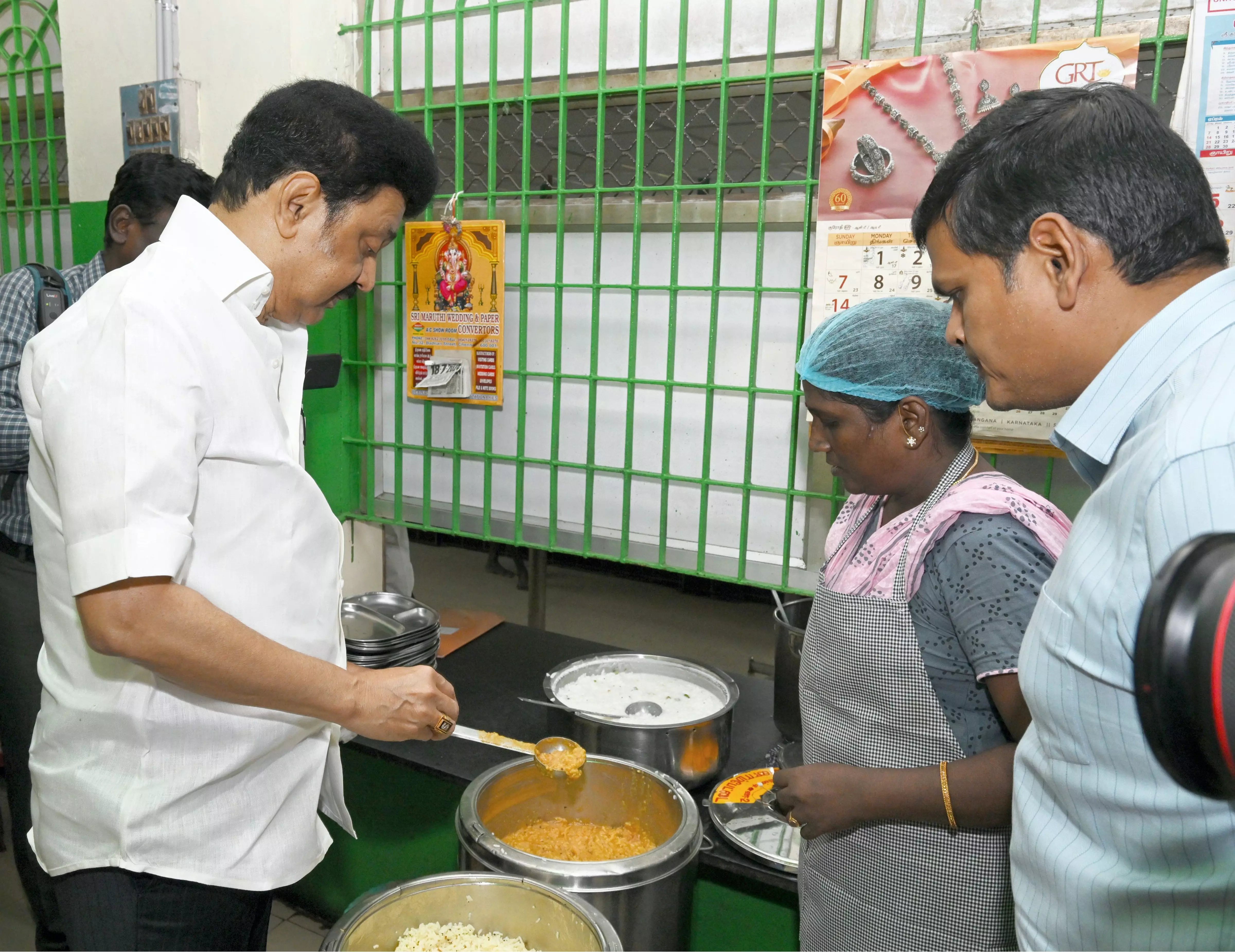
DMK slams AIADMK's Palaniswami for criticising CM Stalin over Amma Canteens
The DMK questioned Palaniswami's competence to talk about Amma Canteens when most of them had witnessed a phased closure during the AIADMK regime

The ruling DMK slammed AIADMK chief Edappadi K Palaniswami for criticising the state government over the running of Tamil Nadu's low-cost chain of eateries, the Amma Canteens, asking if he has any locus stand to comment on the issue.
The Dravidian party's official Tamil organ 'Murasoli' in an editorial on Wednesday (July 24) wanted to know if Palaniswami had the competence to talk about the Amma canteens when most of them had witnessed a phased closure during the AIADMK regime.
These state-run eateries are functioning well under the DMK regime, better than what it was during Palaniswami's tenure as chief minister (2017-21), pointed out the editorial.
Amma canteens shutting down
Further, the Tamil daily said that on March 16, 2018, when Palaniswami was the chief minister, the then finance secretary had said that the CM was studying losses in running Amma Canteens and that some canteens were shut down due to losses.
"During his tenure, Palaniswami, citing losses, had been closing down Amma Canteens in a phased manner. Does he have the competence to talk on Amma Canteens? the DMK daily asked.
Mere drama
A day after Chief Minister M K Stalin's inspection of Amma Canteen here, AIADMK general secretary Edappadi Palaniswami had on July 20 alleged that after the DMK assumed office in May 2021, many Amma canteens were closed down.
The former CM had claimed that the quality of food was 'brought down' and the staff strength was reduced by one-third. He dismissed Chief Minister Stalin's inspection of an Amma Canteen here as a mere drama. In Chennai alone, during AIADMK regime (2011-21), as many as 407 Amma canteens had been functional. Rather than increasing the number of canteens, why were about 19 canteens shut (in Chennai)? the leader of Opposition had asked.
Murasoli, cited 'praises on social media' for Stalin for administering Amma Canteens pretty well unlike the AIADMK regime which had established them.
Praise on social media
The DMK is a democratic party and it did not even change the name of the state-wide canteen-chain. Had late CM J Jayalalithaa been in a similar position, she would have shut down the facilities set up by an arch rival party.
Furthermore, the DMK mouthpiece said: "Palaniswami could not tolerate such praise for the chief minister. He claims with anger that 19 Amma Canteens were shut down. Jayalalithaa established Amma Canteens. Palaniswami was closing them down during his tenure as he does not know to run them properly." It was the AIADMK government which converted (2011-12) the State Secretariat-Assembly complex into a hospital as it was built during the DMK regime (2006-11) by the then Chief Minister M Karunanidhi, Murasoli said.
Detailing fund allocations by the DMK government over the past three years for the canteens, Murasoli said that therefore, it cannot be said that "only now the chief minister has made an allocaton of ₹21 crore." Like the proper implementation of all other government schemes, the Amma Canteens are also functioning pretty well, better than what it was during Palaniswami's tenure.
Popular initiative
Low-cost chain of eateries, Amma canteens (Amma Unavagam in Tamil) was launched by late Chief Minister J Jayalalithaa in 2013 and it was a popular initiative of the previous AIADMK regime (2011-21). The DMK, under the leadership of Stalin assumed office on May 7, 2021.
Following his inspection of a canteen on July 19, Stalin had said: "Our government has taken the steps for satisfying the hunger of over one lakh people daily by spending over ₹450 crore during the past three years." The over ₹450 crore spent (2021 May to till date), the CM mentioned, is by Greater Chennai Corporation for canteens in Chennai. Idly is priced at ₹ 1 (per piece), curd rice at ₹3 (per plate) and other food varieties per plate cost ₹5.
All over Tamil Nadu, the Amma Canteens are run by local bodies with the support of the state government and its multiple agencies.
(With inputs from agencies)

